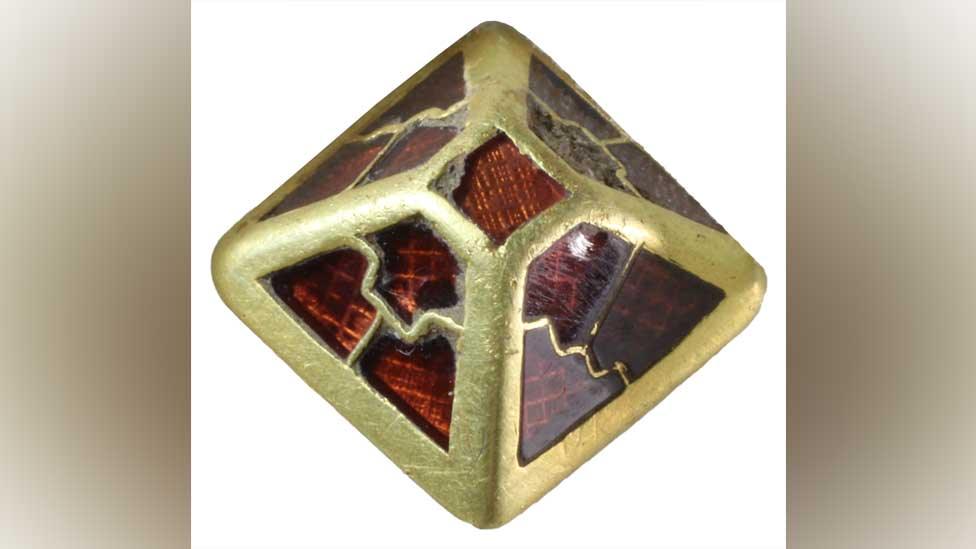Detectorist finds 9,000 Roman coins in Huntingdon hoard
- Published
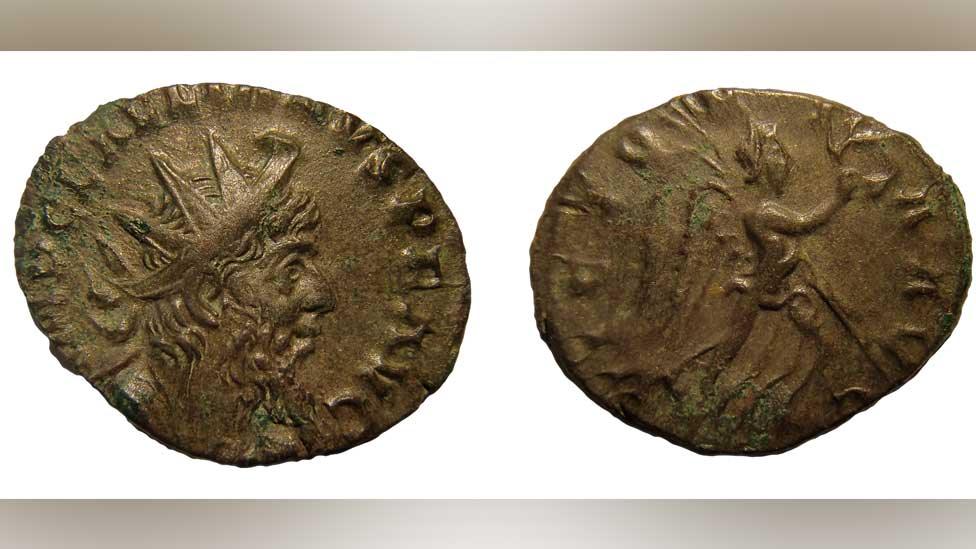
A hoard of more than 9,000 Roman coins has been found in two pottery containers, nested inside each other "a bit like Russian dolls".
They were discovered by a metal detectorist, external in a field near Huntingdon, Cambridgeshire, in spring 2018.
All the 9,274 coins were made of base metal and were probably hidden at a time of turmoil in the wake of the 3rd Century breakaway empire.
The "muddy hoard" was taken to the British Museum for conservation, external.
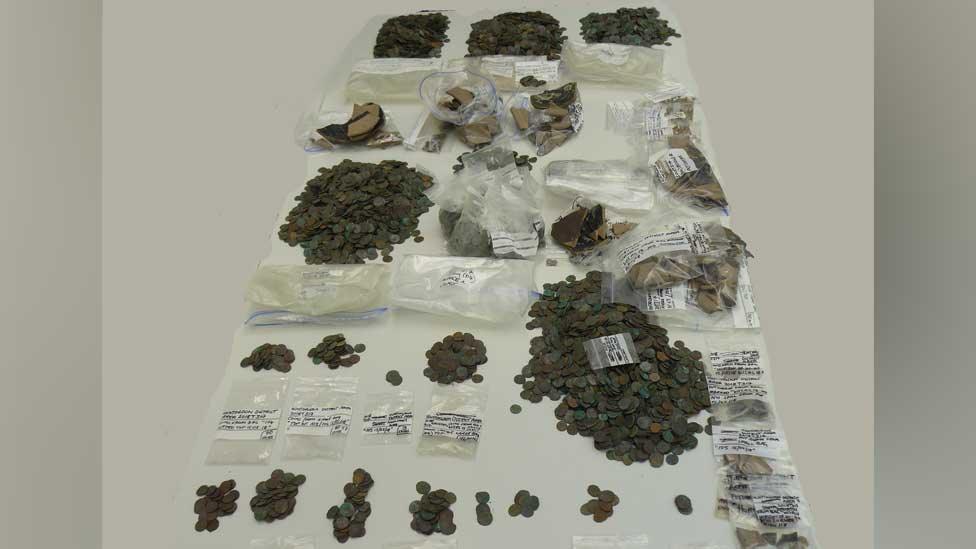
The coins were removed from the pot in three layers
The county's finds liaison officer Helen Fowler, external said the detectorist initially unearthed one copper-alloy coin.
"Then a few more were found and as the number of signals from the detector increased, so did the concentration of the spread of the coins," she said.
"Before the end of the day the finder had dug down and seen the top of a hoard of coins."
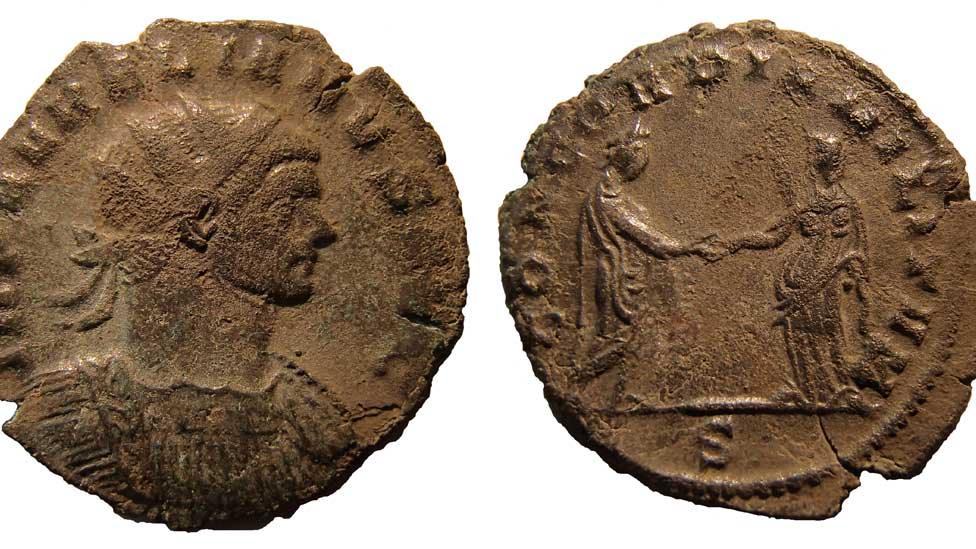
Other Gallic Empire emperors include Postumus, Tetricus I and II, Victorinus, Marcus Aurelius Marius and Domitanus II
The detectorist, who had the landowner's permission for the search, promptly covered it up and reported the find, external.
Miss Fowler and the British Museum's Dr Andrew Brown spent two days excavating the hoard, which had originally been hidden in two pottery containers, "one nested directly inside the other, a bit like Russian dolls", she said.
She suspects the inner pot had started to crack under the weight of the coins, so a second larger pot was required.
The experts nicknamed it the "muddy hoard", she added.
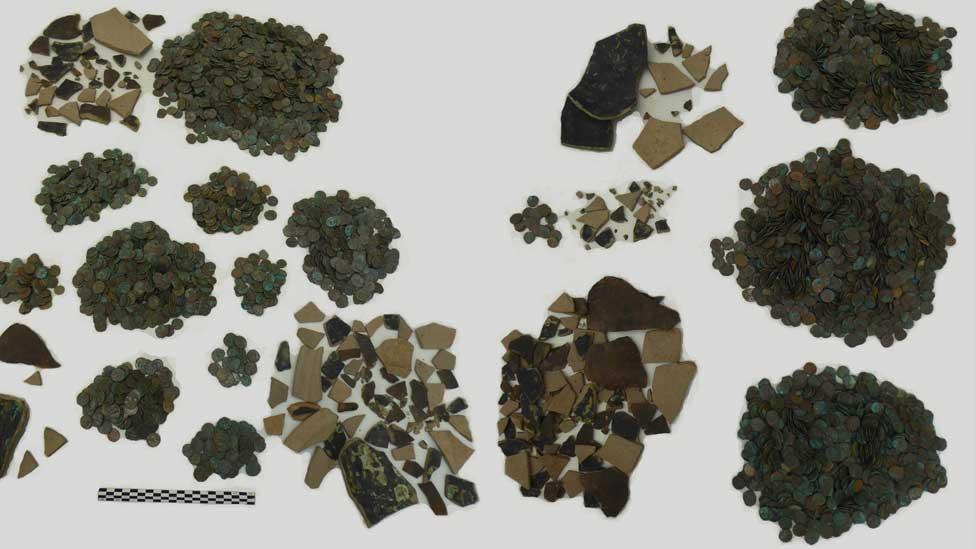
The find took two days to excavate before being taken to the British Museum for sorting and conservation
The coins date to AD251-74 and are believed to have been hidden in the wake of the reconquest of the breakaway Gallic Empire.
It had been established in AD260 and ruled Britain, Gaul (roughly modern-day France) and Spain until Emperor Aurelian reunited the Empire in AD274, external.
Now the hoard has been declared treasure by Cambridgeshire Coroner's Court, external, it is awaiting independent valuation.
Two Cambridgeshire museums have expressed interest in acquiring the hoard.
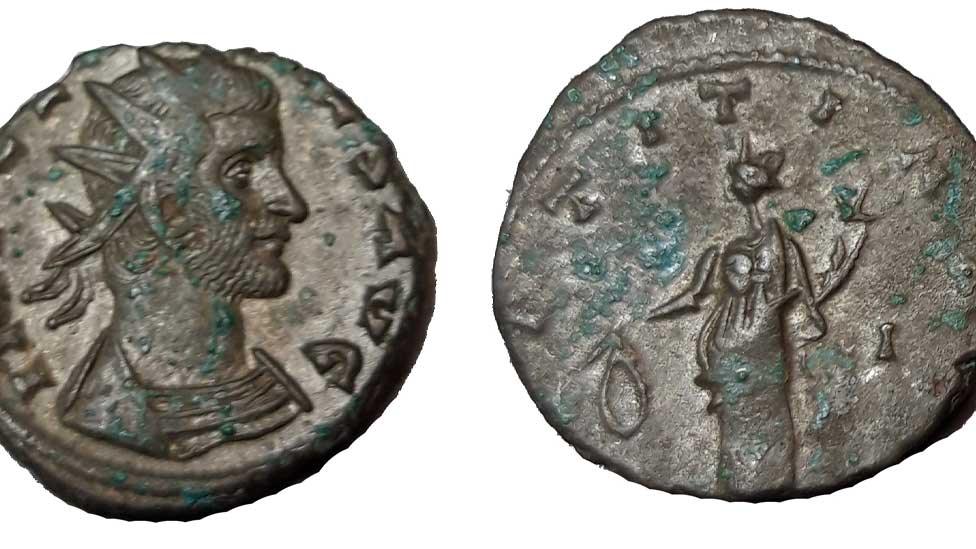
British Museum experts said most of the coins were imitations, made at a time when official coinage was in short supply

Find BBC News: East of England on Facebook, external, Instagram, external and Twitter, external. If you have a story suggestion email eastofenglandnews@bbc.co.uk, external
Related topics
- Published14 December 2021
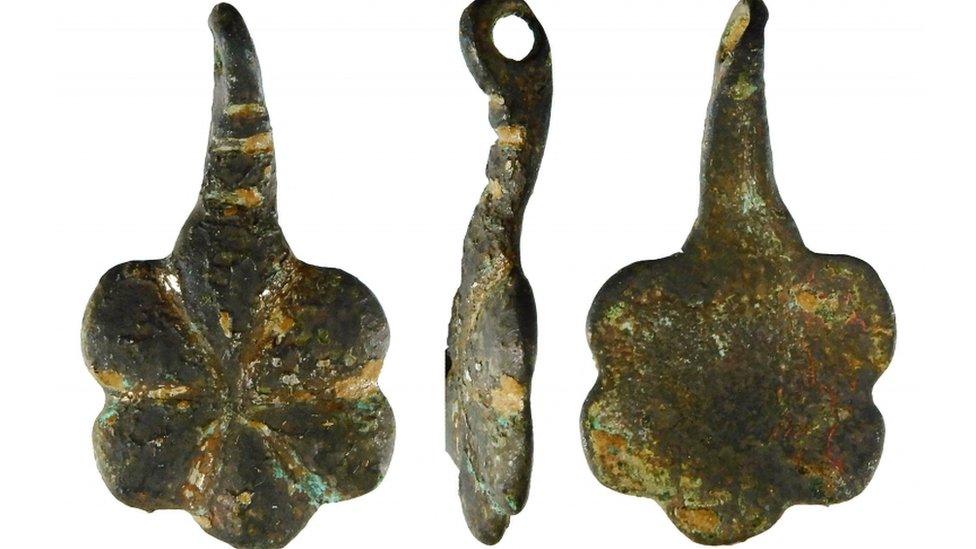
- Published29 November 2021
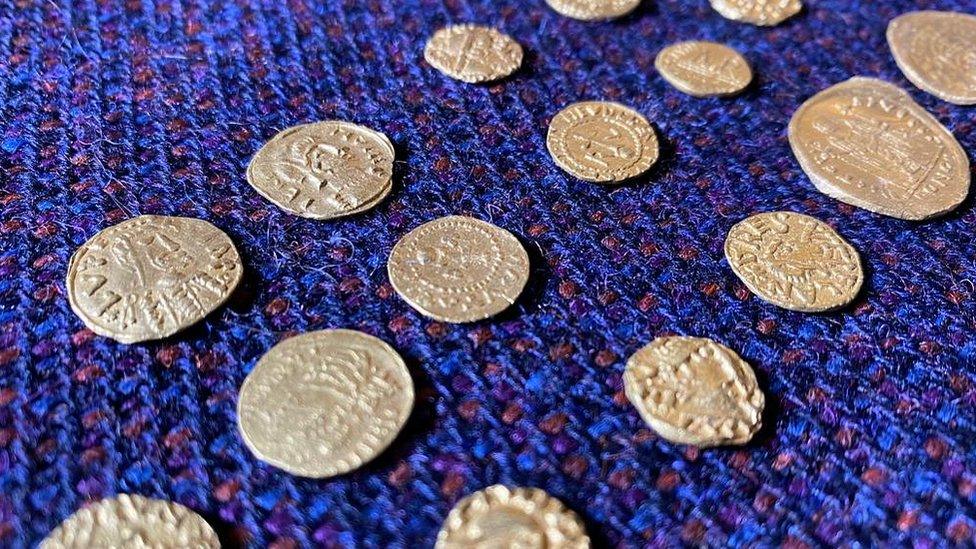
- Published24 November 2021

- Published4 September 2021

- Published1 August 2021
